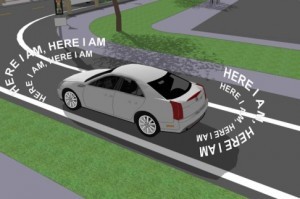Researchers are working on developing new driverless car technologies that could make traffic lights and speeding tickets obsolete

Considering the pace at which technology is advancing today, it might not be too far from now when cars will talk to each other to coordinate traffic patterns, thus doing away with need for traffic lights and speeding tickets on the roads.
According to a ScienceDaily report, researchers are working on developing new driverless car technologies that could make traffic lights and speeding tickets obsolete. They also hope the innovations will bring about the development of driverless cars that use 19 to 22 percent less fuel.
Andreas Malikopoulos of the University of Delaware is using control theory to develop algorithms that will enable this technology of the future. He has described innovations in connected and automated vehicle technology pioneered at the University in two recently published papers.
Recently, Malikopoulos and his collaborators from Boston University developed a solution to control and minimize energy consumption in connected and automated vehicles crossing an urban intersection that lacked traffic signals.
They then used software to simulate their results and found that their framework allowed connected and automated vehicles to conserve momentum and fuel while also improving travel time. The results were published in the journal Automatica.
In yet another innovation, Malikopoulos and collaborators from the University of Virginia formulated a solution that yields the optimal acceleration and deceleration in a speed reduction zone, avoiding rear-end crashes.
Additionally, simulations suggest that the connected vehicles use 19 to 22 percent less fuel and get to their destinations 26 to 30 percent faster than human-driven vehicles. The results of this research effort were published in IEEE Transactions on Intelligent Transportation Systems.
For his work, Malikopoulos is being funded by two U.S. Department of Energy programs — the Smart Mobility Initiative and the Advanced Research Projects Agency — Energy’s NEXTCAR program.










